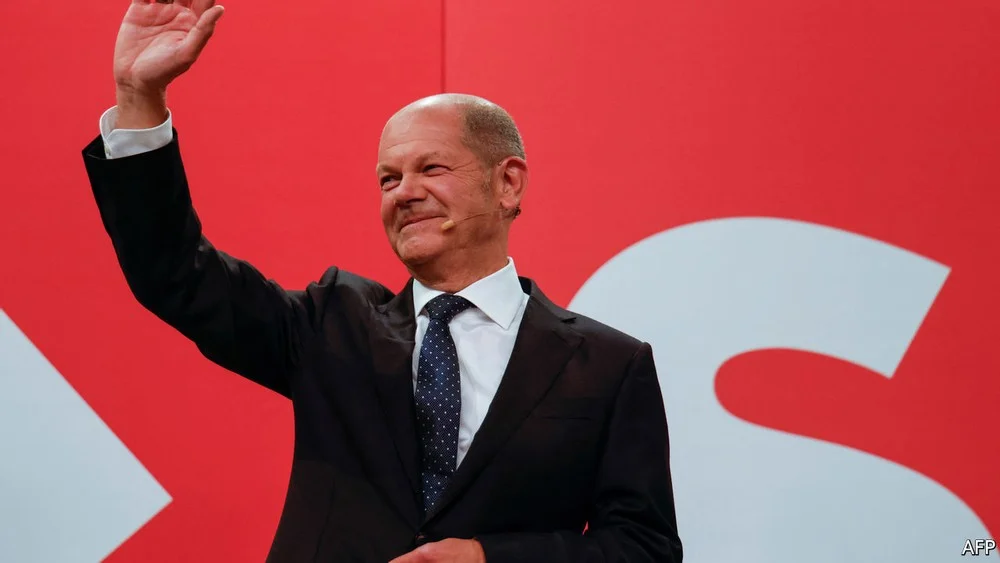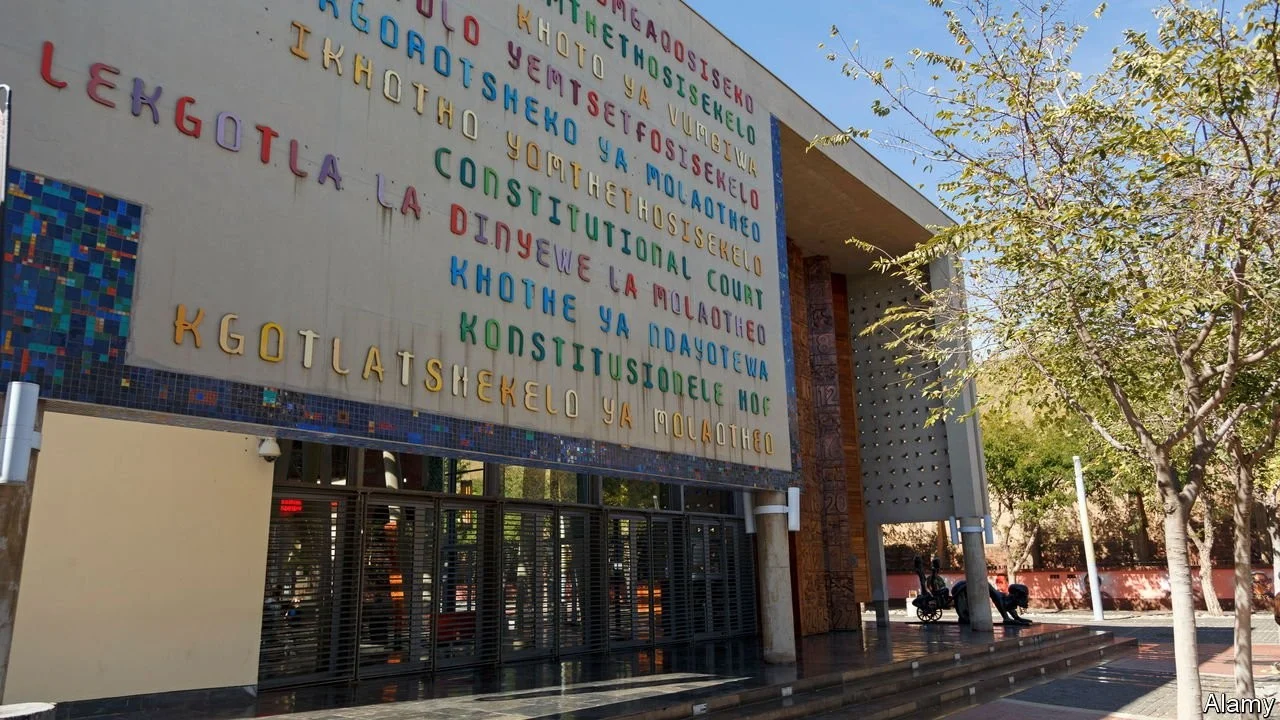BERLIN – THE ATRIUM of the Willy Brandt House, the Berlin headquarters of Germany’s Social Democratic Party (SPD), erupted in cheers as an exit poll suggested that the party had achieved 26% of the vote in Germany’s national election, two percentage points ahead of their conservative rivals, the Christian Democrats (CDU) and their Bavarian ally, the CSU. A second exit poll showed a dead heat, but as official projections started to roll in, it became clear that Olaf Scholz, the SPD’s candidate to replace Angela Merkel in the chancellery, had secured an early edge. Preliminary official results published early on September 27th give the SPD 25.7% of the vote, ahead of the CDU/CSU’s 24.1%.

The two parties once commanded over 90% of the vote in Germany. That this number has fallen to around 50% explains why, whatever the final result, Germany is now entering a lengthy period of uncertainty. Assuming that a continuation of the current CDU/CSU-SPD “grand coalition” is ruled out, whoever leads the next government will need to persuade both the Green Party and the pro-business Free Democrats (FDP) to join them in coalition. That will not be an easy task—not least because Mr Scholz and Armin Laschet, the CDU/CSU candidate, each claimed a mandate to form a government. The leaders agreed they should try to get a government in place by the end of the year, but complex negotiations could upset that timetable. (Angela Merkel will remain chancellor until a new government can be formed.)
In the one case, Mr Laschet would lead a “Jamaica” coalition. In the other, Mr Scholz would become chancellor at the head of a “traffic-light” coalition (the arrangements take their name from the parties’ colours, and Jamaica’s flag). Both would enjoy clear majorities. A left-wing coalition would unite the SPD, Greens and the hard-left Die Linke. But an appalling showing from Die Linke means that grouping will probably fall short of a majority.

In contrast to previous elections, the early projections this year were sufficiently ambiguous for none of the party leaders to make extravagant claims. Perhaps the most important news of the night was that the FDP and the Greens have agreed to begin exploratory talks with one another before agreeing to negotiations with either of the bigger parties. The two parties disagree on much, but if they can assemble a joint position, perhaps including an agreement on the distribution of ministerial portfolios including the crucial one of finance, they will in effect be able to act as joint kingmakers.
For now, what is clear is that Mr Laschet has led the CDU/CSU to its worst-ever election result, down perhaps nine percentage points from the previous election in 2017, itself a historic nadir. The CDU/CSU will take some satisfaction that it has not slumped to the lows found in some recent polls, but the result remains a serious disappointment for a party that has long seen itself as a Kanzlerverein, or “chancellor’s club”. Mr Laschet acknowledged that the party could not be satisfied with its result.
The mood among the SPD’s troops, on the other hand, is bullish. A few months ago the party seemed unable to lift itself from a dismal 15% in the polls. After a strong campaign focused squarely on the unflappable Mr Scholz, they are now looking at a strong result some five points ahead of the 2017 score. Exit polls found a strong preference for Mr Scholz to become chancellor over Mr Laschet—and that the party had done particularly well with older voters. The SPD also looks headed for victory in a state election in the north-eastern state of Mecklenburg-Western Pomerania. Its hopes of holding on to the city-state of Berlin, where another election was held, look uncertain after a late Green surge.
The Greens, meanwhile, took just under 15% of the national vote, according to preliminary results. Given that the party was briefly leading in polls as recently as April, that will feel like a disappointment. Yet it will still count as by far the best result in its history. Michael Kellner, the party’s general secretary, said he was “having a hard time getting excited”, but chose to congratulate the SPD on a “great result”. That is a strong invitation to Mr Scholz to start work on a traffic-light coalition. The CSU had lately ruled out the possibility that the centre-right bloc might attempt to form a coalition if it came second in the election. That also gives an early advantage to Mr Scholz, who returned the Greens’ compliment. Much hard work lies ahead, and the complexity of the coalition constellation could well lead to surprises. But for now, it is advantage Mr Scholz.
Editor’s note: this story has been updated to take in the release of official preliminary results
By The Economist





